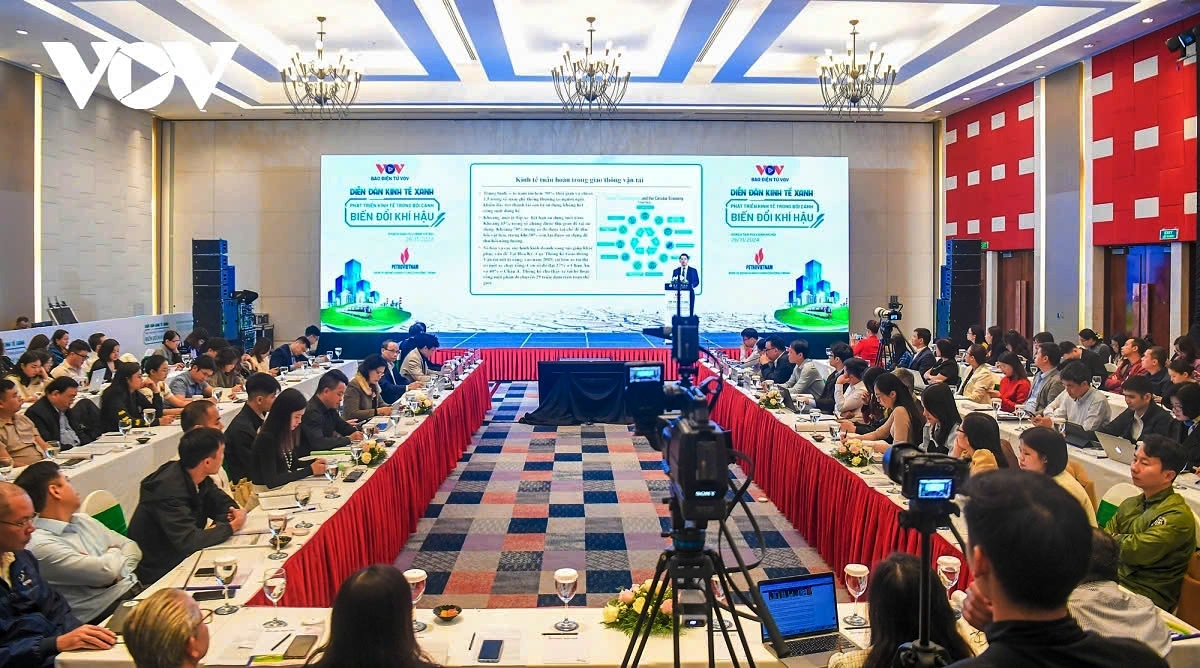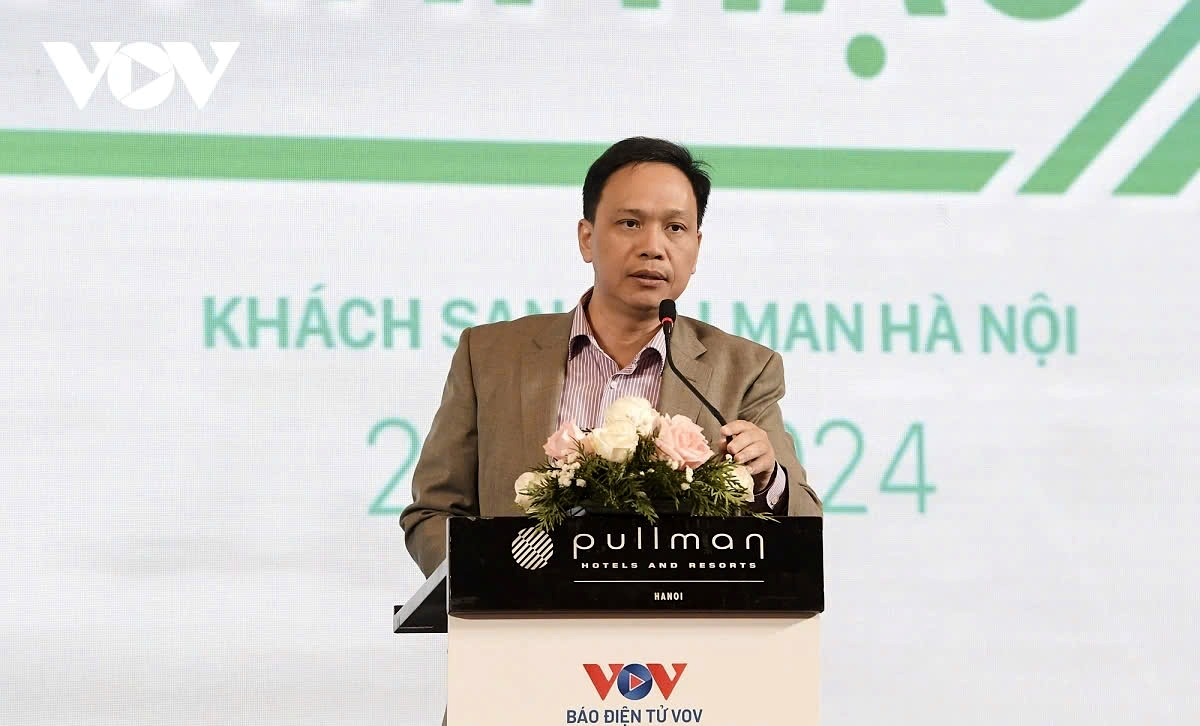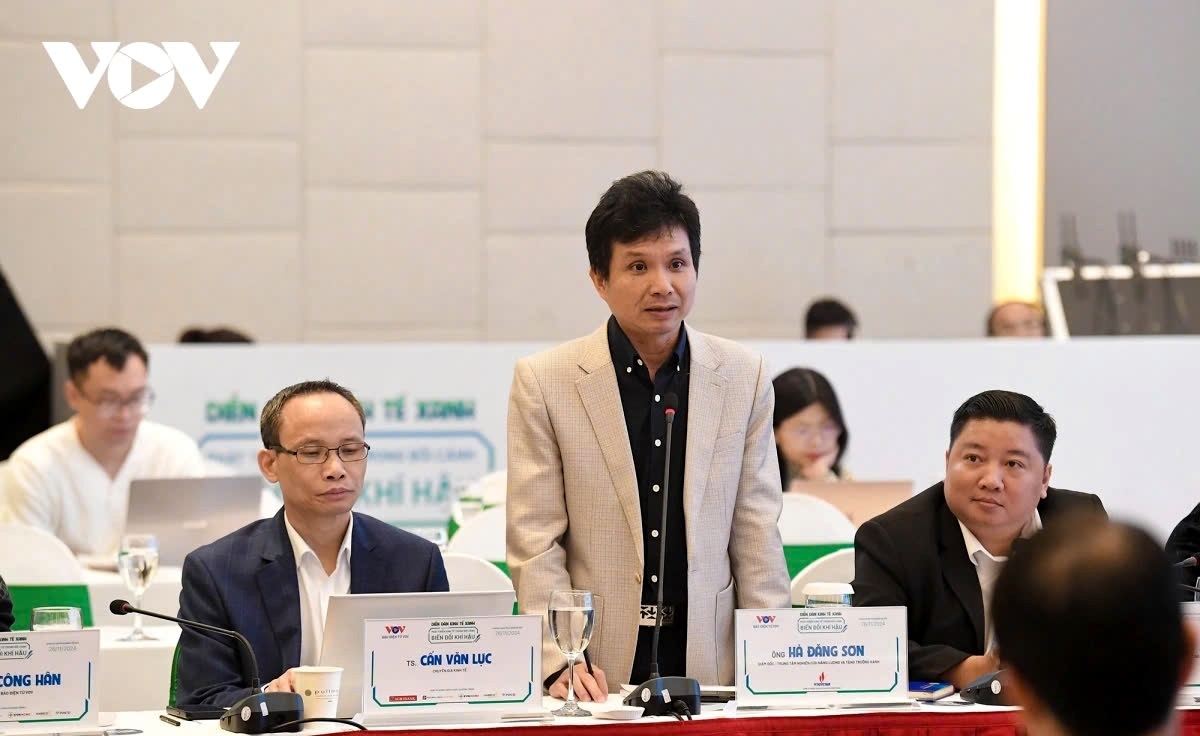Businesses struggle to export products without carbon emissions reduction plans, say forum experts
Society – Economy - Ngày đăng : 18:05, 26/11/2024

Speaking at the forum, Dr. Nguyen Quoc Viet, deputy director of the Institute for Economic and Policy Research (VEPR) at Vietnam National University, Hanoi, cited studies indicating that Vietnam has a high CO2 emissions-to-GDP growth ratio compared to others in Asia, with the energy, transportation, and industrial sectors serving as the largest contributors to greenhouse gas emissions.
The country has committed to achieving net zero CO2 emissions by 2050, and to achieve this goal it needs to rapidly scale up green transformation in a bid to reduce carbon emissions by approximately 78% over the coming decades.
According to Dr. Viet, the National Strategy for Green Growth has also outlined targets and solutions as a means of enhancing the role and contributions of green growth. In particular, the contribution of the green economy to GDP is expected to reach about 1.8% this year, thereby setting the foundation to raise the rate to 3.3% - 3.5% by 2030.
In order to develop a green economy, he emphasised that the first step is to reduce greenhouse gas emissions. Currently, the Ministry of Industry and Trade is running programmes which can calculate the emission levels of each sector. From there, emission reduction targets for each industry will be set, aiming at transitioning production and greening business activities.
In the global shift of green economic development, Dr. Viet pointed out that businesses are under significant pressure from trade barriers, such as the Carbon Border Adjustment Mechanism (CBAM) of the European Commission.

Indeed, the CBAM mechanism creates further opportunities for enterprises by encouraging the use of clean technologies, expanding markets, accessing more stringent markets, and improving the overall ability to integrate clean technologies.
However, there are significant challenges, such as rising costs, carbon taxes, and substantial financial pressures. Compliance with greenhouse gas regulations requires businesses to invest in new technologies, processes, and management systems.
Many Thai businesses investing in the Vietnamese market have stated that if the Government does not introduce a comprehensive policy capable of meeting the requirements set by the CBAM, then companies will face difficulties, not only in exports, but also in foreign investment attraction into the country, he said.
In his opinion, export products will find it hard to stay competitive and to gain a firm foothold in the market unless carbon emissions reduction plans are initiated, not to mention other challenges related to tax costs and reputation issues. In addition, consumers will increasingly favour green products, which in turn will lead to a gradual elimination of non-green products.
He pointed out that businesses in industrial parks need to focus on energy saving and obtaining green certifications, which will serve to prove their emission reduction pathways while simultaneously ensuring full compliance with Environmental, Social, Governance (ESG) factors, including social responsibility and environmental protection actions.
Both general strategies and sectoral policies should therefore focus on green development and adaptation to international barriers, he suggested.

Taking the floor, Ha Dong Son, director of the Center for Energy and Green Growth Research, raised concerns about Vietnam’s “lack of a chief architect” for the massive green growth and circular economy initiative. To effectively implement a green economy, it is crucial to first clearly define the objectives and then to answer the question of “Where do we want to go and what do we need to do?”
Son said he believes that with the focus on green growth and net-zero goals, businesses will face significant pressure, forcing them to think critically and find the right way to navigate these challenges. However, he warned that success cannot be achieved if firms adopt a green strategy merely as a reactive measure. He therefore emphasised that for a green strategy to succeed, it must be proactive and driven by a genuine commitment to sustainability, rather than just responding to external pressures or regulatory requirements.
Developing a green economy may require high-tech solutions and greater investment capital over the short term, although the true, substantial value of these investments will become evident in the long term, said the director.
The forum was organised by VOV.VN in collaboration with several partners, including the Vietnam Oil and Gas Group (PVN), the Vietnam Bank for Agriculture and Rural Development (Agribank), Petrolimex Aviation Fuel Joint Stock Company, Ho Chi Minh City Power Corporation, Hanoi Beer, Alcohol, and Beverage Joint Stock Corporation (Habeco), and Petrolimex Insurance Corporation (Pjico).
